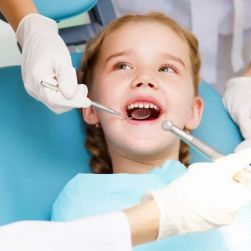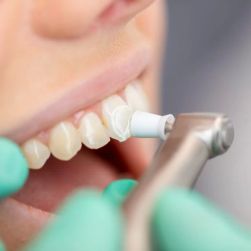In both children and elderly individuals, oral health is not an isolated aspect of wellbeing; rather, it is closely connected to overall health. Factors such as nutrition, chronic diseases, and even medications can significantly impact oral hygiene and dental health outcomes. As we delve deeper into this topic, it's essential to understand how systemic health conditions influence oral care needs across different life stages. This understanding is particularly relevant to the American population where lifestyle and health trends continuously evolve.
The Influence of Nutritional Health on Oral Hygiene
Nutrition plays a pivotal role in maintaining oral health, particularly in children and the elderly. For children, a balanced diet rich in essential vitamins and minerals is crucial for the development of strong teeth and gums. For instance, calcium and vitamin D are vital in building tooth enamel and supporting bone density. Likewise, seniors require adequate nutrition to prevent the onset of oral diseases. Poor nutritional intake can lead to conditions such as dry mouth and gum disease, which exacerbate dental issues. Dentistry Toothtruth emphasizes the importance of tailoring dietary habits to support oral health at every stage of life.
Chronic Diseases and Their Oral Health Implications
Many chronic diseases that are prevalent in the American population have direct and indirect effects on oral health. Diabetes, for example, is a significant risk factor for gum disease in both children and seniors. The high blood sugar levels associated with diabetes can impair blood circulation to the gums, making healing processes slower and exacerbating existing oral health problems. Other conditions such as heart disease and rheumatoid arthritis can similarly affect oral health, underlining the interconnectedness of systemic and dental health. Maintaining overall health through lifestyle changes can thus help mitigate these oral health risks.
The Role of Medications and Oral Health
Medications play a critical role in the management of various health conditions among kids and the elderly, but they often come with side effects that impact oral health. Many common medications can cause dry mouth, increasing the risk of tooth decay and gum disease. Antihypertensives, antihistamines, and antidepressants are among the medications known to reduce saliva flow. For elders, polypharmacy is a common phenomenon, making the management of oral health even more complex. It is important for dental professionals to be aware of their patients’ medication use to provide appropriate oral healthcare guidance.
Implementing Preventive Oral Health Practices
Preventive oral health care is essential for managing the interplay between overall health and oral hygiene. Regular dental check-ups, combined with good daily oral hygiene practices such as brushing and flossing, are fundamental preventive measures. For children, inculcating these habits early ensures a lifetime of healthy oral practices. For seniors, adapting dental care as health conditions change is crucial. Dentistry Toothtruth advocates for preventive care as the best defense against complex oral health issues.
Conclusion and Actionable Advice
The intricate connection between overall health and oral health in children and elderly individuals highlights the need for a comprehensive approach to health care. By understanding how nutrition, chronic diseases, and medications can affect dental health, individuals can proactively manage their oral health. Encouraging practices such as maintaining a balanced diet, managing chronic health conditions effectively, and visiting the dentist regularly are critical steps toward maintaining optimal oral health. As more Americans become aware of these connections, they can make informed decisions that benefit both their systemic and dental wellbeing. Visit Dentistry Toothtruth for more tips and resources on managing oral health effectively.






